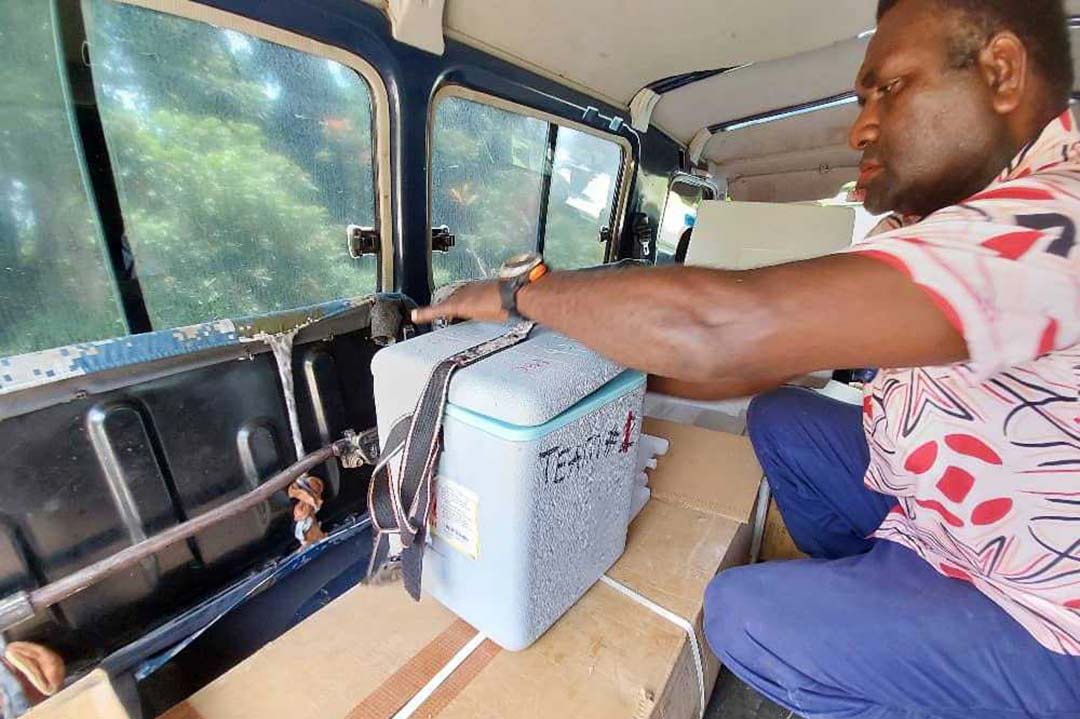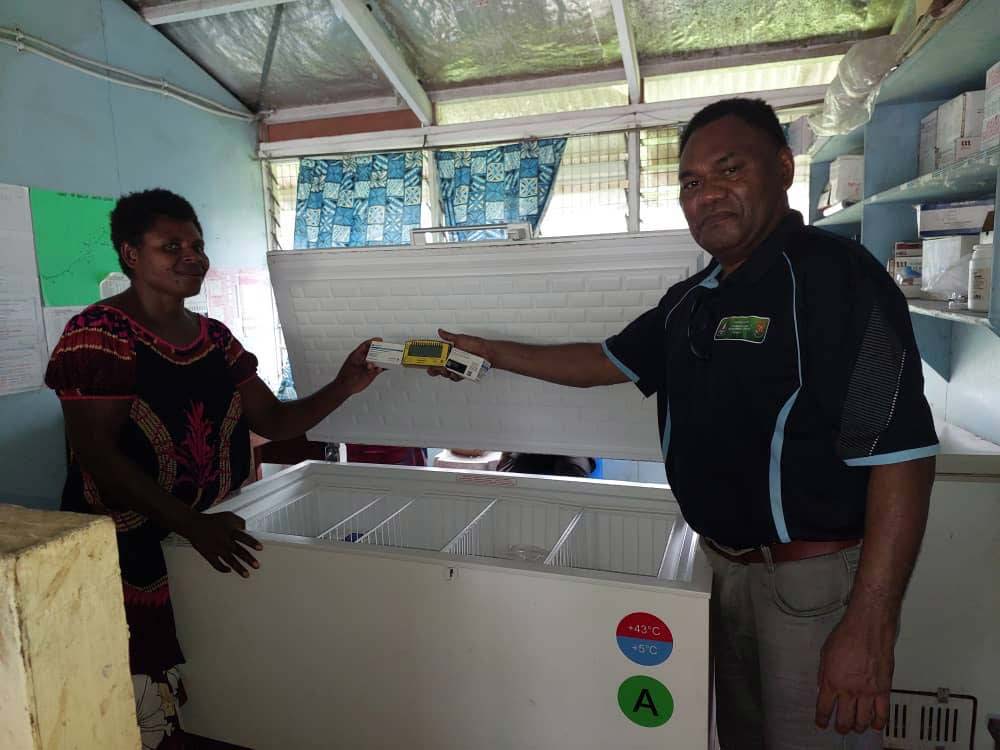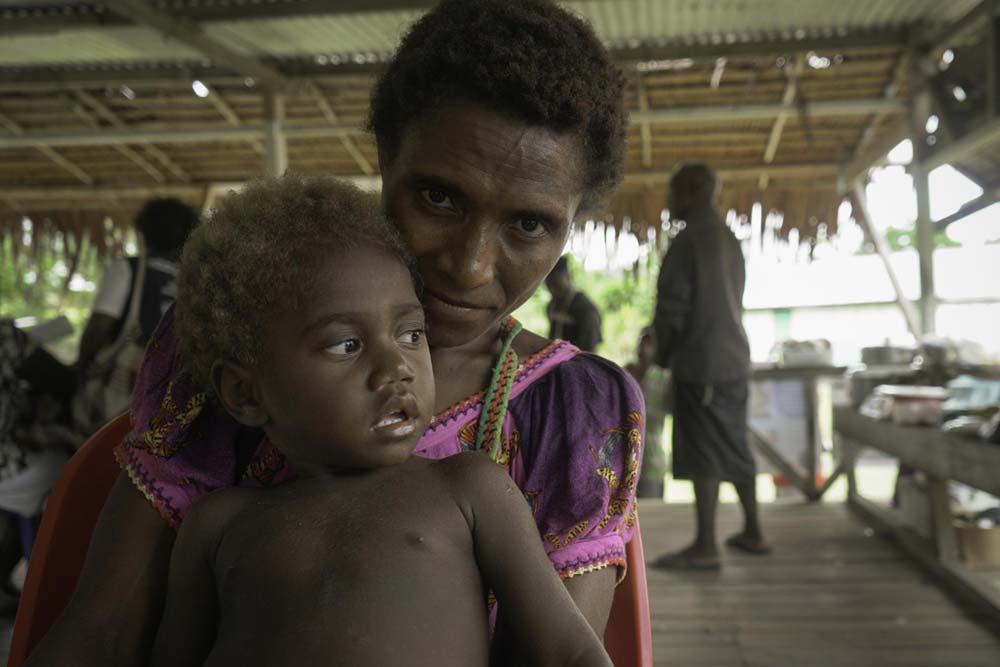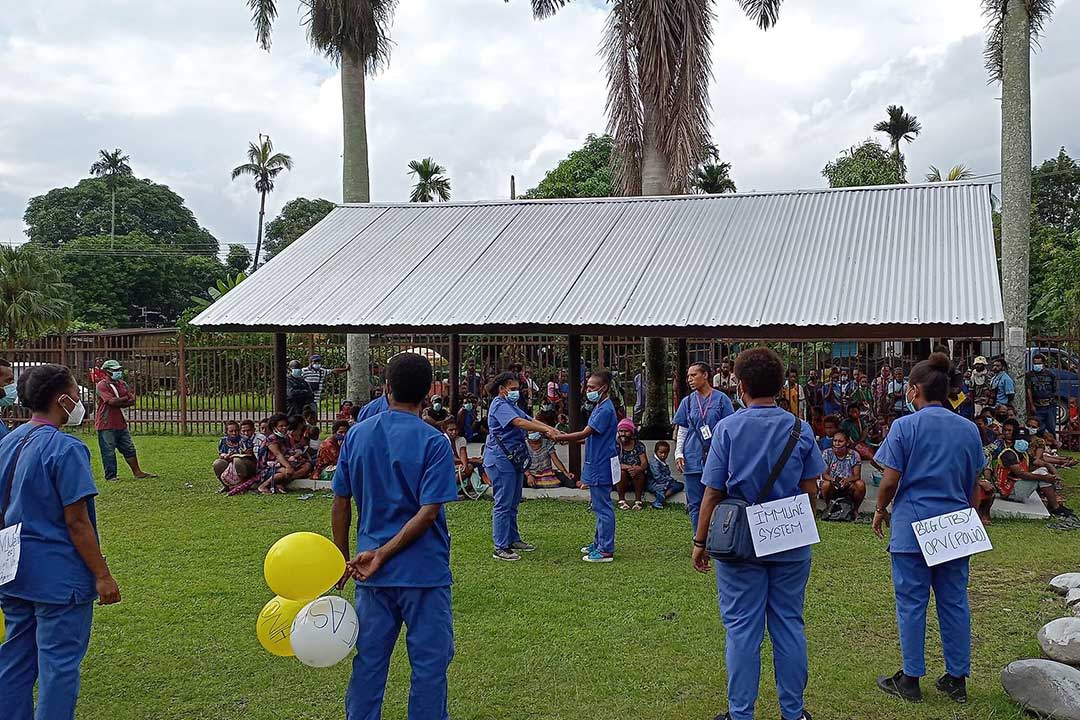In Papua New Guinea, a roving high-level taskforce is finding and patching immunisation gaps
First on their to-do list? Build out the cold chain.
- 22 March 2023
- 5 min read
- by Bethanie Harriman

Papua New Guinea (PNG's) health authorities are travelling around that country to ensure that provincial health facilities are fully equipped with the cold chain equipment they need to store COVID-19 and routine vaccines.
The country's Department of Health has used funding support from Gavi, approximately US$ 2 million over two years, to put together a high-impact team called the Vaccine Taskforce to ensure that children across the country have access to vaccines.
“Basically, we are trying to address the access part of it – just making sure that all the provincial health authorities make the vaccine available in all the facilities."
– Dr Daoni Esorom, Executive Director of the Vaccine Taskforce
The department is also working to digitise the way data is being collected throughout the country, with the aim of improving the timely replenishment of vaccination supply and maintenance of cold chain equipment. Bringing information online is also expected to better facilitate PNG's monitoring and evaluation processes.
The taskforce, which is partnered with a diverse array of organisations, including UNICEF, WHO, JICA, and the governments of New Zealand and Australia, has travelled throughout the four regions of PNG, covering 22 provinces.
"A lot of work is done through our partnerships," said Dr Daoni Esorom, Deputy Controller of PNG's pandemic reponse and Executive Director of the Vaccine Taskforce. "In order to stop preventable diseases, we need to ensure that the cold chain supply is working around the clock 24/7."
In 2020, the PNG government received 224 solar vaccine refrigerators from Gavi and UNICEF after an initial 364 solar vaccine refrigerators, which have been given to rural health facilities around the country. Solar vaccine refrigerators have been included for most rural health facilities that are not connected to existing electricity grids while urban health facilities also get them due to continuous power outages.
"Basically, we are trying to address the access part of it – just making sure that all the provincial health authorities make the vaccine available in all the facilities that have functioning cold chain equipment," said Dr Esorom.

Credit: Dr Daoni Esorom
Health experts describe PNG as one of the most difficult countries in which to deliver health services. Air transport is often only reliable option for moving COVID-19 and routine vaccines, and in the past, when there was no proper cold chain equipment or solar refrigerators, it was difficult to maintain vaccine potency.
When provincial health authorities couldn't get vaccines to a health centre – often due to a fractured cold chain – it meant that parents needed to bring their children to those distant facilities that were able to stock the jabs.
Have you read?
For some families, that kind of travel simply isn't feasible. UNICEF PNG recently reported the story of a mother who couldn't afford the bus fare to an urban clinic that could provide the immunisations her son was due. "I am grateful to the health team for choosing to bring this service to my villages where we don't have to walk long distances or look for money for transport to reach the town facilities," Francisca Bosep told UNICEF.

Credit: Unicef PNG
According to the country's Department of Health, the revitalisation programme begun in 2020 is helping more children in more parts of the country to gain regular access to routine immunisations.
As the country returns to normalcy after the acute first chapter of the pandemic, more mothers are bringing their babies to get vaccines for in health facilities around the country. That's a vital: WHO and UNICEF figures warn that the number of children reached with a third dose of diphtheria, pertussis and tetanus containing vaccine – the conventional indicator for full immunisation – had dropped to just 31% in PNG in 2021.
"It's not all doom and gloom: work is being done to fix that," said Dr Esorom, who has personally documented the teams' travels on Facebook, explaining that 797 health facilities now have functioning cold chain equipment. Help is on its way for other facilities, he says.
“Health services in PNG can't be delivered in any other way but the PNG way. Being brave and overcoming the challenges.”
– Dr Esorom
In one post, he shares a collage of images of health workers in off-road vehicles bringing vaccines to a remote health facility in East New Britain Province."Health services in PNG can't be delivered in any other way but the PNG way," Dr Esorom writes in the caption: "Being brave and overcoming the challenges."
Local media reports that the taskforce has been updating the Department of Health on which areas need COVID-19 vaccinations or routine immunisation vaccines, and those that need new cold chain equipment. They've also worked with provincial health authorities to improve community engagement and risk communications.
Along the north coast of PNG, in rural Tewae-Siassi district of the Morobe Province, a senior health worker said the cold chain equipment is extending the life of vaccines for routine immunisation.
"Yes, they've assisted with storing vaccines for routine immunisation," said Acting Chief Executive Officer of Etep Rural Hospital, Bradley James, speaking of the additional equipment. But he also suggests more funding needs to be put into supporting outreach programmes.
"But almost all aspects of outreach logistics and support depend on the funding. The roll-out depends on funds, initiative and support," he said.
Health workers at the Etep Rural Hospital cover 47 different villages spread across difficult terrain and separated by great distances, so there is a need for more support to reach children.
Dr Esorom said the health department is therefore working closely with all its partners to make sure that the cold chain equipment revitalisation programme continues to roll out successfully for provinces in the country.






